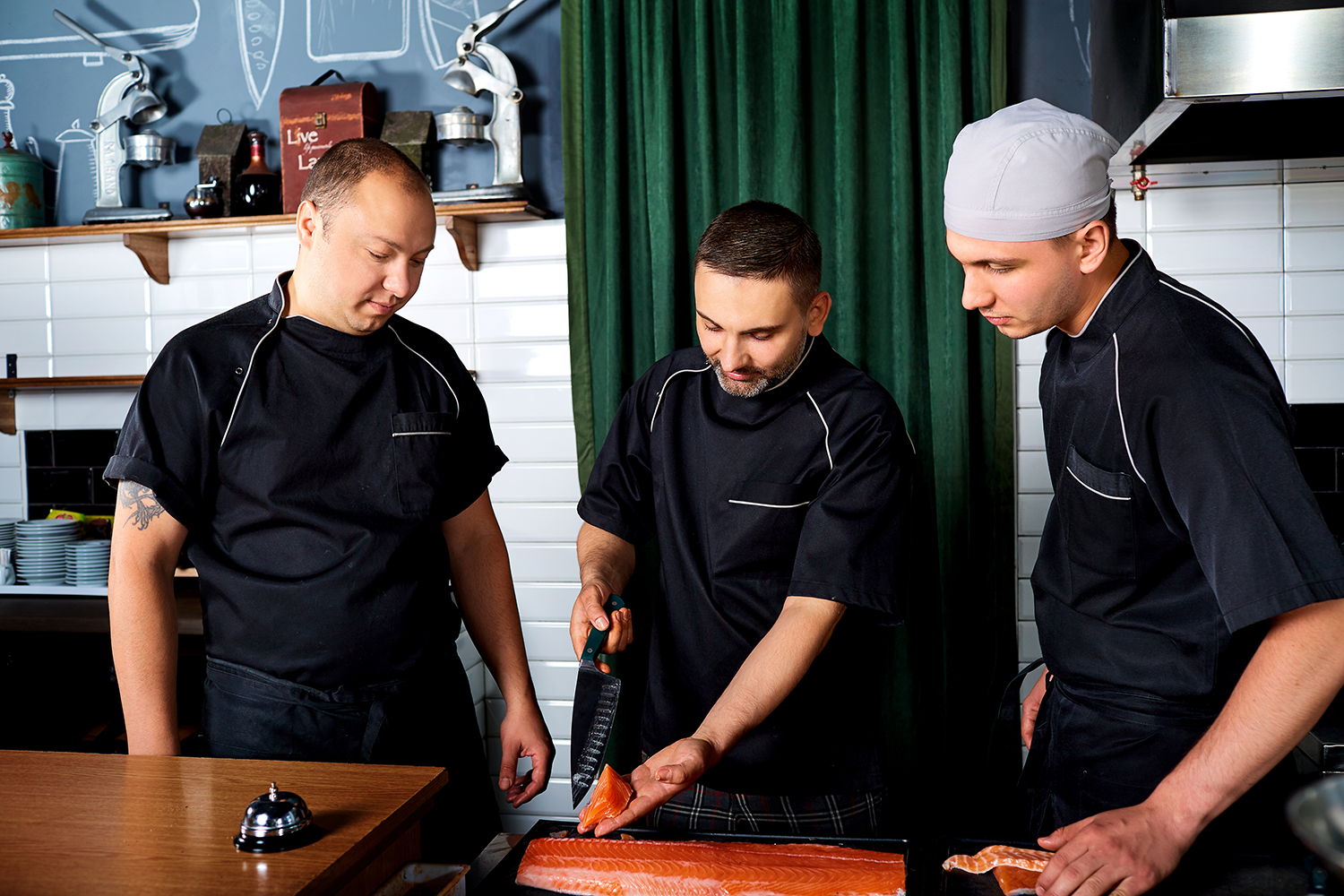As we enter 2020, I wanted to offer a suggestion for the New Year that will truly transform your business: Mentoring. Providing guidance to someone that is new to your organization has likely always been something you appreciated, but that isn’t the same as offering meaningful mentorship. There is ample evidence that organizations who provide access to and focus on mentoring experience far lower turnover rates. They also see far better team performance and a generally improved work atmosphere.
Many of you are saying, “Sure that sounds like a good idea, but is it realistic?”
Unfortunately, if you’re asking that question then you aren’t ready to accept mentorship as your New Year’s resolution. However, if instead you ask, “How do I do this in my restaurant?” then we will be happy to provide you with some ideas on how to get there.
Below we outline the steps to creating a mentorship program in your restaurant.
Define Your Mentoring Goals
In order to implement a successful mentor program, you must first understand what you hope to accomplish with your effort. Your approach might be different for newly hired employees versus seasoned veterans that are already possessed of advanced their skills at their position. For the purpose of this exercise we will focus on two types of mentorship -- new hourly staff and development of tenured staff members/management. However, you can define mentor tracks for any position with a little thought.
Mentoring the New Restaurant Employee
In the case of the newly engaged employee, you want the mentor to guide the new employee through the process of coming onboard. From knowing where to put their coat to when pay day is, the mentor is there as a resource to the new employee. The goal for the mentor is to smooth the turbulence of starting in a new job, act as a knowledge base without judgement, and guide the employee as they integrate into your restaurant’s culture.
This may be an imperfect analogy, but when I joined a fraternity in college, I was given a “big brother” to help me understand the groups dynamic and help me transition to becoming a contributing member of the organization. Mentors for new staff can fill this role and greatly improve the onboard experience of new employees.
Mentoring Existing Restaurant Staff
For existing staff and managers that you have identified as having long-term potential for your organization, the mentoring goals are quite different. For those who would benefit from development, assigning a mentor gives them a guide as they embark on their careers at a professional level. Instead of supporting them as they learn the rules of the road, these mentors are coaching them to elevate their performance and towards consideration for a leadership role.
If you are a multi-unit system, the mentor doesn’t have to be from your restaurant specifically, but must be capable of delivering the support and feedback that will ensure the mentee has a clear path to their goal of advancing with your organization.
Choose Your Restaurant’s Mentors Wisely
Undoubtedly, mentors need to be the most reliable staff and managers you have on your team. You must approach your mentoring program as if it is a reward for their performance and not an additional burdensome responsibility. You may also want to pay them a bonus if they are charged with onboarding and employee, and that staff person reaches a year in position. Given that we know it costs around $5,000 to recruit, hire, and train a new staff member, rewarding those that ensure you are reducing turnover makes a lot of sense.
For mentoring that is focused on the development of the mentee as a potential leader in your organization, you can position mentoring as a part of the growth plan for the people you designate as mentors. If they want to be a GM or multi-unit manager one day, a demonstration that they can provide mentoring and leadership to your newly developing bench just makes sense.
It’s crucial to remember that mentoring gives as much to the person who provides it as the one who receives the guidance. People that have acted as mentors will assure you they learned as much as they taught and they loved the experience.
Set Your Restaurant’s Mentors Up for Success
You can’t just identity mentors and assign them to people on your team. It takes effort, but the reward is saving the time and money required to find and train a new staff member. That is why it’s crucial to approach mentoring at your location in an organized and professional manner. This means planning what the mentor will cover, organize sacrosanct time for mentor and mentee to meet, and tracking the results to verify your effort is working.
You need to be thoughtful about matching, especially with new employees that you are nurturing through the anxiety of starting a new job. Start slowly and only use your best employees. Outline exactly what you want mentors to focus on while they support the new hire and protect their time spent on working directly with their mentee. It is equally imperative that you meet with the mentors and mentees periodically to check in on their progress. Only by participating do you know if the mentors are delivering the right support and if the mentees are thriving or struggling.
What Will Be the Results?
Before you start any mentoring program, do a thorough analysis of your results. For hourlies, calculate the tenure for your last 10 new hires. That average will likely give you a benchmark to judge the success of your efforts. Do the same one year after mentoring and compare. We will wager that number will have grown significantly. The real value of mentoring is a long game, but with unemployment at record lows will be worth the investment in reducing turnover and improving performance at your restaurant.














